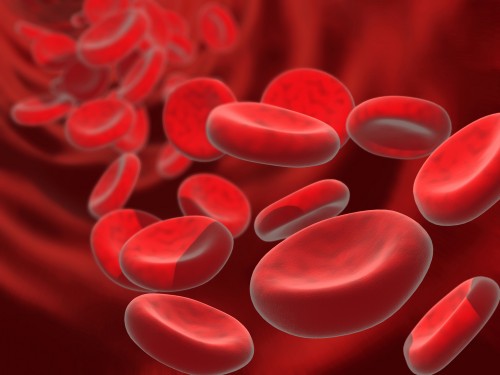
Blodet innehåller de basala beståndsdelarna så som vatten, salter och albumin (som är ett protein som krävs för vätskebalansen i blodet). Men det syntetiskt framställda blodet innehåller även proteiner tagna från havslevande maskar.
Proteinet hemerytrin innehåller en järnkärna (precis som kroppens naturliga hemoglobinmolekyler). Järnkärnan möjliggör transport av syre.
Huvudforskare Radu Silaghi-Dumitrescu, Babes-Bolyai University tror att två år är en rimlig tid innan blodet kan testas på människor och komma ut i kliniken. (Idag är det alltså endast testat på möss).
Jag funderar lite över hur det blir med patientens immunförsvar. Immunförsvarets celler tillhör ju blodet, och kommer i och med tillförsel av det nya blodet till patienten bli utspädda. Det är väl helt enkelt så att patienten kommer ha nedsatt immunförsvar under den tid det tar för benmärgen att producera tilräckligt med nya celler tillhörande immunförsvaret.
The First Trial Results of Artificial Blood Use Are Encouraging
1 november 2013, Lisa Winter
Hemerythrin has the added benefit of making the blood stress resistant, which has been a considerable challenge in other attempts to manufacture a synthetic blood alternative. Previous blood formulas could not stand up to stress factors and ended up turning toxic. Hemerythrin is the only protein to succeed on this front so far.
The trials were completed using mice, and will continue to do so until it has been exhaustively shown that the synthetic blood does not pose a risk for toxicity. Head researcher, Radu Silaghi-Dumitrescu, from Babes-Bolyai University speculates that it will be around two more years before the formula is ready for human testing. Human trials “represent an enormous risk” and Silaghi-Dumitrescu wants to ensure all safety concerns have been addressed beforehand.
Success in trials over the next two years will lead the team to publish their results and Silaghi-Dumitrescu has confirmed that he will seek a patent on the formula.
- See more at: http://www.iflscience.com/health-and-medicine/first-trial-results-artificial-blood-use-are-encouraging#sthash.YGfhlsWc.dpuf